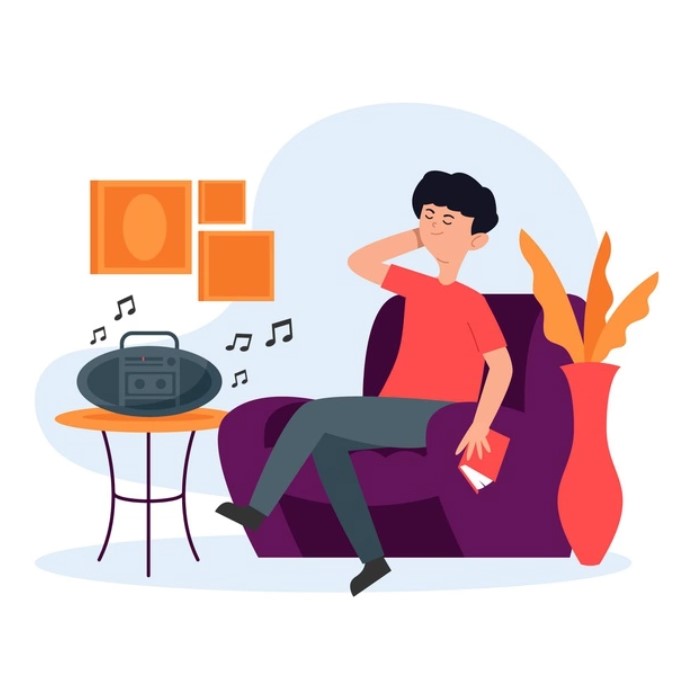Hello again!
Last month, I mentioned self-compassion near the end of my blog post. I encouraged us all to treat ourselves with compassion right now, as we are in a time of such uncertainty and societal change. However, when mentioning self-compassion, I did not adequately outline what it actually looks like, what it truly means in the psychological sense, or how we can all “get more of it.” With that in mind, I thought the topic of self-compassion was important enough to warrant a dedicated post.
(Disclaimer: The entirety of this post is based solely on Dr. Kristin Neff’s work, which can be accessed via her website. Also, throughout the following post, I will hyperlink any/all information I found on Dr. Neff’s website, so the wonderful resources provided there can be accessed easily by you readers).
The first (and extremely necessary) question needing to be answered prior to having a meaningful discussion about self-compassion, is:
“What does self-compassion really mean?”
As outlined by Dr. Kristin Neff, this unbelievably important psychological concept can be described through six central ideas.
There are three essential components to self-compassion:
- Self-Kindness versus self-judgment: I like to think of this as treating myself the way I would treat a good friend. For example, I (like us all) am extremely unlikely to judge an important friend for making a small mistake. Instead, I would extend them my understanding, because I recognize that they are only human, and mistakes are inevitable. Unfortunately, this is not how I am naturally inclined to treat myself when I make mistakes. Rather, my typical inner dialogue sounds more along the lines of “you always do this,” “you never can do anything right,” etc., which is absolutely not how I would treat a friend. In fact, if I had a friend who treated me like that when I made mistakes, I would probably stop being friends with them very quickly…
- Common Humanity versus isolation: By my understanding, the purpose of this self-compassion component is to remember that our painful feelings of inadequacy, and the upsetting things that can happen to us in life (whether they are out of our control or not) are universal experiences, and the fabric of the human condition. We are all imperfect, and we are all going to go through many tough times on a regular basis. Further, the persistent ideas (likely reinforced by our culture) that we are supposed to be perfect individuals, and that things are not supposed to go wrong in our lives, are simply incorrect. In reality, they only end up hurting us….
- Mindfulness versus over-identification: I understand this third aspect of self-compassion as the necessity for us to both identify and validate our own emotions in a non-judgmental manner, while also taking care to not become entirely consumed by the emotions. As Dr. Neff highlights, when treating ourselves with the most compassion we possibly can, we must not only recognize and accept our pain, but must also take steps to reduce our experience of suffering, by working towards not over-identifying with our painful emotions. Without striving to find this balance, we are likely not able to take the greatest care of ourselves in times when we may need it the most…
Further, there are three things that self-compassion is not:
- Self-pity: Based on my understanding, self-pity opposes two main components outlined above. It favours isolation over common humanity, and over-identification over mindfulness.
- Self-indulgence: While many assume that self-compassion would surely lead to self-indulgence, research has repeatedly shown that the opposite is, in fact, the truth.
- Self-esteem: Importantly, self-esteem is based on our evaluation of ourselves. Thus, it is tied to our social comparisons, our abilities to succeed, and whether we feel “above average.” Because of the constant variability of these factors, self-esteem can be quite unstable; this is not true for self-compassion, because self-compassion is entirely separate of our self-evaluations. Rather, self-compassion allows for us to create a caring space for ourselves, where we are able to address our shortcomings and flaws more readily, which leads to enhanced self-betterment and intrinsic motivation for life.
The next question to be answered is:
“What are the benefits of having more self-compassion?”
While there are so many more positives linked to practicing self-compassion than I am able to list in this post, the following are a handful of benefits described throughout Dr. Neff’s website (based on empirical research).
Those who practice self-compassion are more likely to:
- be happy
- demonstrate resilience
- feel optimistic about the future
- exhibit better mental health, overall
- set high standards for themselves
- hold high self-efficacy beliefs, which enhance one’s potential for success
- set new goals after previous “failures”
- have greater intrinsic motivation for life
- take responsibility for past actions and missteps, rather than blaming others or the environment
- feel guilt (i.e., remorse, a desire to make amends) rather than shame (i.e., negative self-views)
- apologize when they have hurt others
- change themselves for the better
- engage in healthy behaviours (e.g., ceasing cigarette smoking, accessing medical care, physical activity, etc.)
- have better relationships with others
- exhibit enhanced psychological well-being
Those who practice self-compassion are less likely to:
- be depressed
- feel anxious
- experience stress
- feel insecure
- experience negative emotions in response to failures, rejection, and/or loss
- fear failure, and have this fear of failure inhibit them from striving for their goals
- feel upset when self-goals are not met
- ruminate in negative emotions following “failures”
- blame their problems on others
- be self-critical
- work towards their goals as a means to impress others (instead doing so for the purposes of learning and growing)
Self-compassion has been shown to:
- enhance one’s motivation to repair any harms they have caused in the past
- cause the release of oxytocin (which increases felt generosity, connectedness, warmth, compassion, calmness, safety, trust, etc.)
- inhibit the release of cortisol, and the triggering of the fight or flight system
- be linked to reduced overall cortisol levels and heightened heart rate variability (i.e., increased feelings of safety and flexibility in responding to one’s environment)
- be associated with the same benefits of high self-esteem (e.g., lower depression, greater happiness) without the negative outcomes seen with high self-esteem (e.g., narcissism, self-enhancement bias, unstable self-evaluations).
- protect caregivers from burnout and increase their felt satisfaction
- enhance one’s overall motivation
- remain highly stable despite external situations (unlike self-esteem)
The natural third question needing to be answered is:
“How can we cultivate more self-compassion?”


Now that we have gone over what self-compassion is, why it is beneficial, and ways we can cultivate more of it, I wanted to introduce my goal for the next month:
I plan to implement Dr. Neff’s self-compassion exercises. And, as I know from past experience, working on myself like this creates an (unfortunately) very habitable environment for my inner critic. So, next month, I will follow up this post with another discussing my experiences cultivating self-compassion, and addressing the most difficult aspect of self-compassion for me (i.e., having compassion for my inner critic).
Also, I encourage any readers who would like to also try a few of the exercises! If you do, tell me about it in the comments:)
Screw the stigma<3
-Tristen
The views expressed in this blog are my own, and do not necessarily reflect the policies or views of the University of Victoria. I monitor posts and comments to ensure all content complies with the University of Victoria Guidelines on Blogging.
Primary Reference (i.e., the homepage of Dr. Kristin Neff’s website):
Neff, K. (2021). With self-compassion, we give ourselves the same kindness and care we’d give to a good friend. Self-Compassion, Kristin Neff. https://self-compassion.org/

striplife.ru
Incredible a lot of excellent facts.
Your mode of telling all in this article is truly good, every one
can easily be aware of it, Thanks a lot.
First of all I would like to say great blog!
I had a quick question which I’d like to ask if you do
not mind. I was interested to know how you center yourself and
clear your thoughts before writing. I have had difficulty clearing
my mind in getting my ideas out there. I do enjoy writing but it just seems like the
first 10 to 15 minutes are lost just trying to figure out how to
begin. Any ideas or hints? Thank you!
Thank you a lot for sharing this with all people you actually recognize what you’re talking
approximately! Bookmarked. Please also consult with my website =).
We will have a link exchange agreement among us
Really all kinds of very good information.
If some one desires to be updated with newest technologies afterward he
must be visit this web site and be up to date all the time.
I am now not certain where you’re getting your info, however great topic.
I must spend a while learning much more or figuring
out more. Thank you for wonderful info I used to be in search of this info for my mission.
I think the admin of this web page is actually working hard in favor of his web page,
since here every data is quality based material.
Hey, I think your website might be having browser compatibility issues.
When I look at your website in Opera, it looks fine but when opening in Internet Explorer,
it has some overlapping. I just wanted to give you a quick heads up!
Other then that, amazing blog!
Undeniably believe that which you said. Your favorite justification appeared
to be on the internet the easiest thing to be aware of.
I say to you, I certainly get annoyed while people consider worries that they just do not know about.
You managed to hit the nail upon the top and
defined out the whole thing without having side effect ,
people could take a signal. Will probably be back to get more.
Thanks
Hi there! This article could not be written any better! Looking at this post reminds me of my previous roommate!
He always kept preaching about this. I will forward this post to him.
Pretty sure he will have a good read. I appreciate you for sharing!
You are so awesome! I don’t think I’ve truly read a single thing
like that before. So nice to find someone with some unique thoughts on this subject matter.
Really.. thanks for starting this up. This web site is something that
is needed on the web, someone with a little originality!